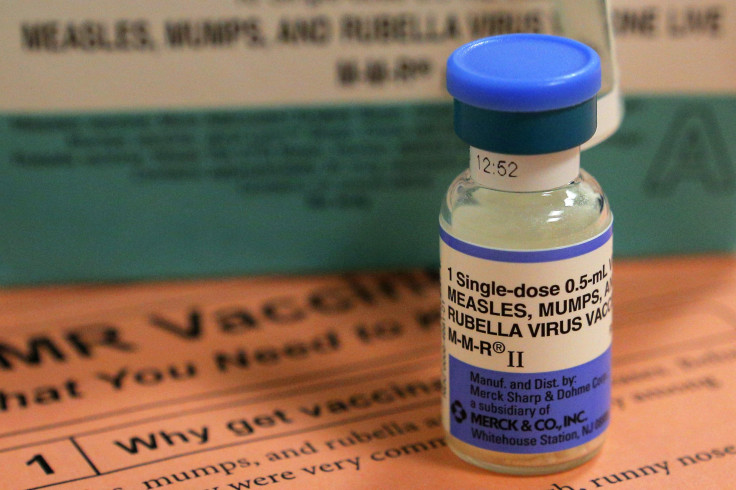Measles Symptoms, Prevention: 3 Babies Contract Viral Infection At Kansas Daycare

Three babies in Johnson County, Kansas, contracted measles after going to the same daycare center, making them the first reported cases of the viral infection in the state this year.
The Johnson County Health Department said Tuesday that the three infants, all under a year old, were too young to be vaccinated for the disease.
"In order to prevent the spread of measles, the affected children and others they have come in contact with have been excluded from the child care facility for 21 days following the last exposure to the disease, as per the Kansas Administrative Regulation 28-1-6. Any child that has been exposed to measles should not attend any childcare facility or school. This protects the community from further spread," the department said in a statement Tuesday.
Measles, which is a respiratory disease caused by a virus, has affected 13 people as of late February, according to the Centers for Disease Control and Prevention. The number of cases have declined since the creation of the MMR (measles, mumps, rubella) vaccine. However, the infection still sickens millions and kills more than 140,000 people worldwide each year.
Children below the age of one year are typically not given the measles vaccine. Infants usually get their first dose of the two-dose vaccine between 12 and 15 months of age and the second dose between the ages of 4 and 6.
“Measles is still out there, and people get kind of complacent with vaccines, but you certainly don’t want to get measles,” said Nancy Tausz, Health Service Division Director of the Johnson County Health Department.
According to the World Health Organization, measles is transmitted through droplets from the nose, mouth or throat of infected persons.
"Severe measles is more likely among poorly nourished young children, especially those with insufficient vitamin A, or whose immune systems have been weakened by HIV/AIDS or other diseases. The most serious complications include blindness, encephalitis (an infection that causes brain swelling), severe diarrhoea and related dehydration, and severe respiratory infections such as pneumonia," WHO says in a report.
In 2014, 114,900 people died due to measles, and most of the victims were under the age of 5.
Measles symptoms:
1. Cough
2. Coryza, or runny nose
3. Conjunctivitis, or swollen eyelids and inflamed eyes
4. Watery eyes
5. Photophobia, or sensitivity to light
6. Sneezing
7. A reddish-brown rash
8. Body ache
Measles prevention:
Better functioning of the immune system can help prevent a measles outbreak. The MMR vaccine, which is the preventive measure from the infection, is a three-in-one vaccination that can protect children from the measles, mumps, and rubella (German measles).
© Copyright IBTimes 2025. All rights reserved.





















